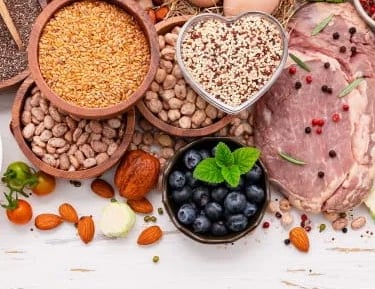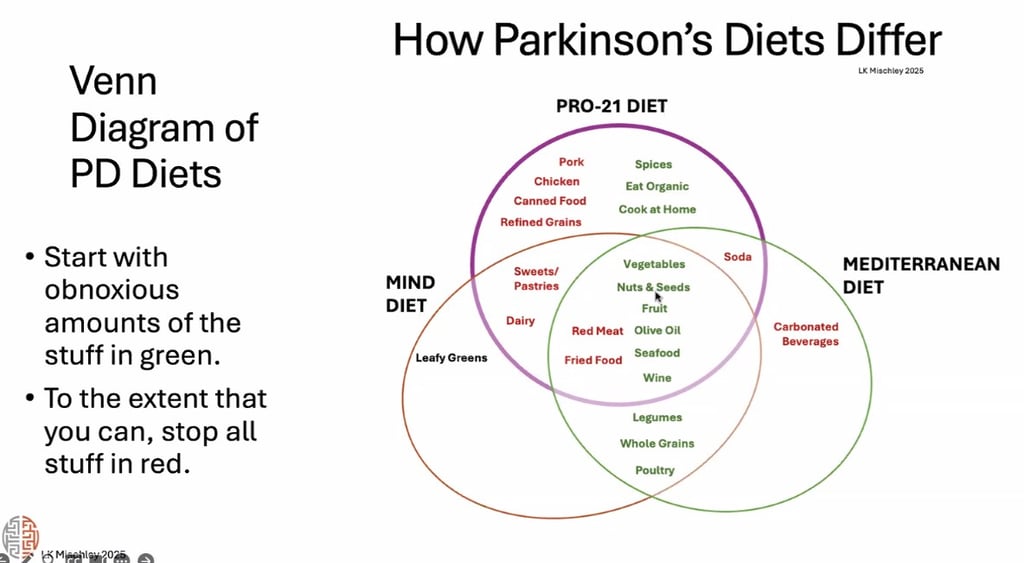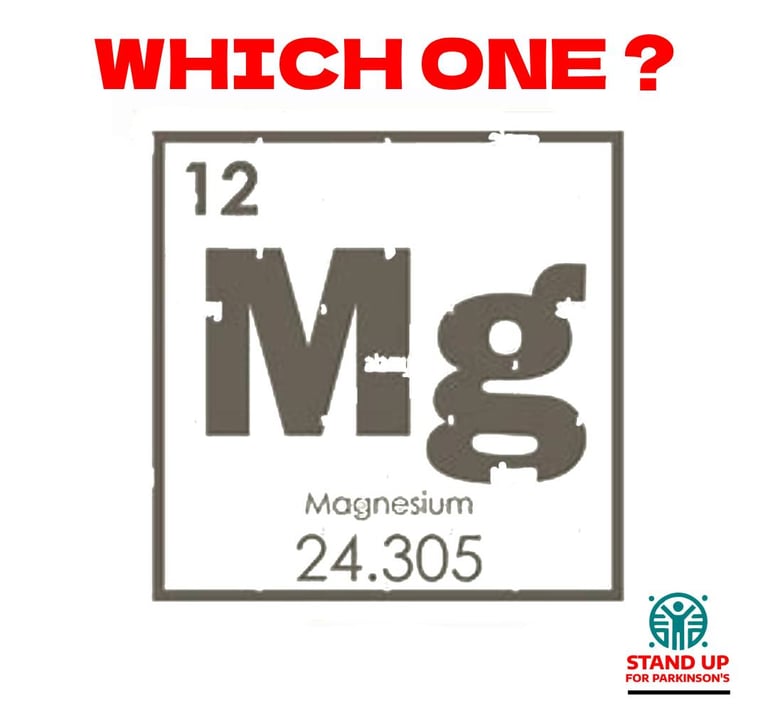Join me in challenging stigma, building awareness, and creating community for over 110,000 Canadians living with Parkinson’s.


Foods to Include:
Fruits: Apples, bananas, oranges, watermelon, strawberries, avocados, beets, tomatoes
Vegetables: Green leafy vegetables, velvet beans, lima beans, peas, broccoli, cauliflower, cabbage
Whole Grains: Whole wheat, quinoa, oats, brown rice
Healthy Fats: Avocado, nuts, olive oil
Lean Protein: Fish, poultry, lean meats
Dairy: Milk and dairy products that contain tyrosine
For individuals with Parkinson's disease, a balanced diet rich in fruits, vegetables, whole grains, and lean protein is recommended, with attention to potential medication interactions and managing common symptoms like constipation.
Foods to Limit or Avoid:
Sugary Foods and Drinks: Limit or avoid sugary foods and drinks.
Processed Foods: Reduce consumption of processed foods, which often contain high amounts of sodium, unhealthy fats, and additives.
Excessive Salt: Reduce salt intake to help decrease your risk of high blood pressure.
Saturated Fat and Cholesterol: Choose a diet low in saturated fat and cholesterol to reduce your risk of heart attack and certain types of cancer.
Alcohol: Drink alcoholic beverages in moderation, as they have empty calories and few (or no) nutrients.
Tips for healthy eating and to alleviate symptoms of Parkinson’s
A balanced diet is a foundation of good health.
For people with Parkinson’s disease (PD), a balanced diet is even more important. In PD, there are some foods that may help to ease symptoms and help brain health, while others can affect the way medications work.


1. Magnesium Citrate
Absorption: High. Often used for general supplementation.
Effect: Can help with constipation (a common issue in Parkinson’s), because it has a mild laxative effect.
Parkinson’s Angle: Useful if gut motility is slow, but too much can mean extra bathroom trips.
2. Magnesium Glycinate (or Bisglycinate)
Absorption: Excellent, very gentle on the stomach.
Effect: Known for calming properties, reducing anxiety, improving sleep, and easing muscle cramps.
Parkinson’s Angle: Sleep support and muscle relaxation can be a big win for symptom management.
3. Magnesium Malate
Absorption: Good.
Effect: Supports cellular energy production (malic acid is part of the Krebs cycle).
Parkinson’s Angle: May help with fatigue, which is a common but under-talked-about symptom.
4. Magnesium Threonate
Absorption: Good, especially across the blood–brain barrier (unique feature).
Effect: Shown in studies to support memory, learning, and neuroplasticity.
Parkinson’s Angle: Promising for cognitive health and possibly slowing neurodegeneration, though human Parkinson’s-specific studies are limited.
5. Magnesium Oxide
Absorption: Poor (but very high elemental magnesium).
Effect: Mostly used as a laxative or antacid.
Parkinson’s Angle: Not ideal for boosting magnesium levels, but can help with stubborn constipation
6. Magnesium Sulfate (Epsom Salts)
Absorption: Through the skin (topical baths or creams).
Effect: Relaxing muscles, easing tension.
Parkinson’s Angle: Good for stiffness and cramping relief via warm baths — plus a nice excuse for self-care.
7. Magnesium Taurate
Absorption: Good.
Effect: Combines magnesium with taurine, supporting heart health and calming the nervous system.
Parkinson’s Angle: May help with autonomic symptoms (like blood pressure swings) and anxiety.
Why Magnesium Matters in Parkinson’s
Neuroprotection: Low magnesium levels have been linked to increased oxidative stress and possible faster neurodegeneration.
Muscle Health: Helps with rigidity, cramps, and restless legs.
Sleep & Anxiety: Supports calmness and restorative sleep.
Constipation: Different forms can keep things “moving” when dopamine isn’t.
⚠️ Caution:
High doses can interact with Parkinson’s meds or cause diarrhea.
Kidney issues (not uncommon with age) mean magnesium supplementation should be monitored.
Not all forms are equal — so matching the type to the symptom is key.
👉 Quick cheat sheet:
Sleep, anxiety, stiffness? → Glycinate
Brain/cognition? → Threonate
Constipation? → Citrate or Oxide
Fatigue? → Malate
Muscle soak? → Epsom salts
Common Types of Magnesium & Their Roles








